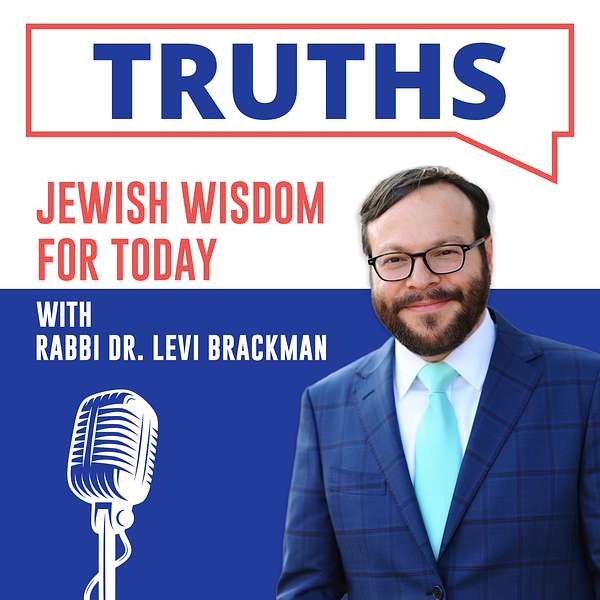
Truths - Jewish Wisdom for Today
Hosted by Rabbi Dr. Levi Brackman, "Truths: Jewish Wisdom for Today" is an insightful podcast exploring the confluence of religion, science, and philosophy.
The podcast serves as a platform for curious minds who value nuance and pursue wisdom. It is not designed for individuals seeking absolute truths or those inclined towards unquestioning religious adherence, but instead for those who traverse our rapidly evolving world as seekers and explorers.
With the mission to impart valuable insights rooted in Jewish perspective that resonate with contemporary times, "Truths: Jewish Wisdom for Today" learns from distinguished guests, shares insights with listeners, and adapts with time and context. This podcast stands as a guiding light for those questing for wisdom and a nuanced understanding of spirituality amid the complexities of the modern world.
Truths - Jewish Wisdom for Today
Defying the Divine: The Stories of the Makoshesh and Makalel - Shlach with Yehuda Ber Zirkind
In this episode of "Truths, Jewish Wisdom for Today," host Rabbi Dr. Levi Brackman and guest Rabbi Yehudah Ber Zerkind discuss the Torah portion of Shlach, focusing on the story of the man gathering sticks on Shabbos (the Makoshesh). This story is juxtaposed with another incident from the portion of Emor in Leviticus, where a man curses God and is similarly punished by stoning. They explore why these stories appear where they do in the text and the broader implications.
Key points discussed include:
- The juxtaposition of Stories: Both stories are placed amid other narratives, creating a thematic connection. For example, in Shlach, the story follows a discussion on atonement offerings and precedes the tale of the spies. In Emor, the story follows the section on the showbread arranged on Shabbos.
- Comparison and Context: Levi and Yehudah Ber discuss how these stories might seem out of place but suggest that their placement is intentional to draw comparisons. The juxtaposition highlights the seriousness of desecrating Shabbos and blasphemy.
- Lessons and Wisdom: The Torah's sequencing aims to teach that certain actions, like desecrating Shabbos or blaspheming, fundamentally damage the community's fabric and relationship with God. These acts are treated with the utmost severity, reflecting their perceived threat to societal cohesion and spiritual integrity.
- Enforcement of Values: The discussion parallels leading a new society, like the Israelites in the desert, and running a successful business. Strong leadership, clear values, and strict consequences for violations are necessary to maintain order and uphold the community's mission.
- Didactic Elements: The Torah uses these stories to provide concrete, practical examples of the consequences of defying its commandments. These narratives serve as teaching tools, emphasizing the gravity of such actions and their impact on the community.
The Role of the Community: The communal aspect of punishment, especially stoning, is not just about the severity of the violations. It's a way to demonstrate collective outrage and maintain communal purity. This communal involvement underscores the importance of each individual's actions and reinforces societal norms.
In conclusion, the episode delves into the deeper meanings behind the placement and implications of these Torah stories, drawing connections to broader themes of law, order, and community integrity. The conversation underscores the Torah's role as a teaching tool, guiding individual behavior and communal values.
Levi Brackman is a rabbi, Ph.D. in psychology, best-selling author of Jewish Wisdom for Business Success, and founder of Invown, a platform for real estate fundraising and investing.
